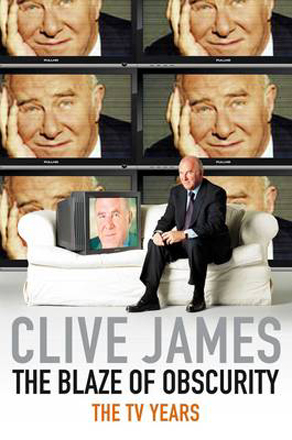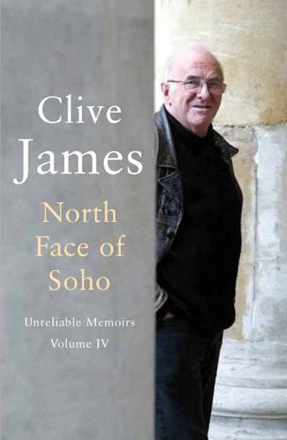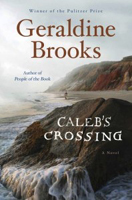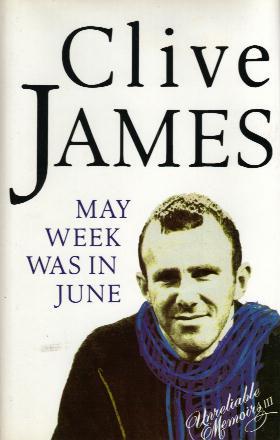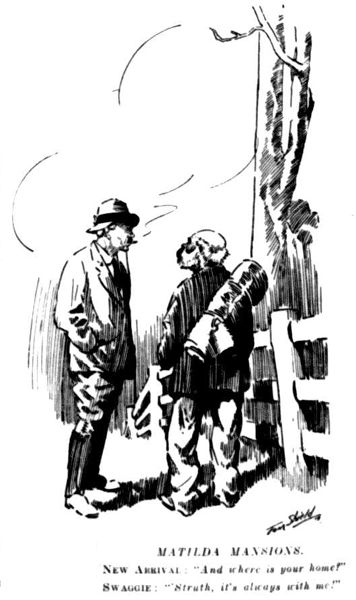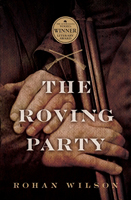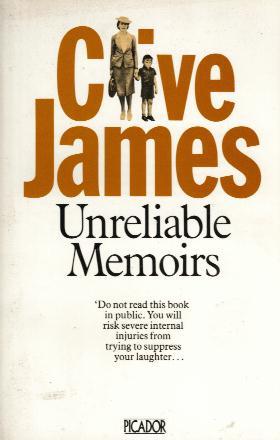Australia is said to possess no native song birds, but she has as many poets as Pembroke College in the days of Dr. Johnson. "We were a nest of singing birds, sir," said the doctor, and Mr. Douglas Sladen, who has just published a portly volume of "Australian Poets," might say as much for the colony (Griffith and Farran). We are apt to think of Australia as a severely practical continent, full of sheep-shearers, gold-miners, mechanics, farmers, and shepherd swains very unlike him who "watched the visionary flocks, "that old-world morn in Sicily," to combine the information of Mrs. Browning and of Mr. Matthew Arnold. But Mr Sladen has discovered a century of poets, -- a cool hundred of them, -- in Australia, or in some way connected with Australia. Yet the colonists are practical people. An Australian reviewer once introduced a British bard to the notice of the antipodes with the remark that a kinsman of the singer was associated with the "celebrated Larra Merinos." Sheep first, song afterwards, is, on the whole, the motto, something like the saying attributed to Richard III, when he stabbed Henry VI before smothering the babes in the tower. Is Australia likely to become the home of the English muse, who, in England, has long been remarkable rather for the quantity than the quality of her effusions? Whenever a country has a great poetry, critics easily prove that it must be so on account of the climate, the soil, and the character of the scenery. But it is less easy to prophesy beforehand. Australia, according to Mr. Sladen, has "one of those delightful climates conducive to rest in the open air." This has a hopeful sound. The shepherds of Theocritus usually do their minstrelsy while resting in the open air, beneath the pine tree, beside the Fountain or the Nymphs. On the other hand, England has had plenty of poets, and nobody can call the English climate delightful. In Australia "the atmosphere is dry champagne." If atmospheric champagne produces ministrelsy, this colony should rival "all the angels singing out of heaven." But the British climate is less like dry champagne than like the beverage known to some in our land as "heavy wet." In fact, Australian and English conditions of climate are the reverse of each other. In both countries, however, the Bard is thought of as "a poor poet of a fellow," to use the Irish expression; as "a soft headed one," to steal a phrase from the Zulus.
Mr Henry Kendall is regarded as quite the greatest Australitn poet, especially if we do not reckon Adam Lindsay Gordon, who was of English (or Scotch) birth. We are informed, however, that "Henry Kendall, apart from his genius for wutiug lyrical verse, was what the Scotch call a 'feckless' person." Poets often are. Mr. Kendall was accustomed to weep like anything when he read his own verses aloud. If conscious of this weakness (which he used to exhibit in the office of the Sydney Punch), Mr Kendall would have done wisely in abstaining from elocution. His extraction gave promise of extreme sensibility. He was a twin, and his mother was "a lady of lush extraction named Melinda M'Nalty," who married Kendall père on one day's acquaintance. Mr. Henry Kendall began his career, like Sir Walter Scott, in a lawyer's office. But Sir Walter's chief was not a poet, and Mr Kendall's was. A lawyer and a lawyer's clerk, both of them poets, could hardly be prosperous or the cause of prosperity in others. His life was, not unnaturally, one of struggle and sorrow, for he was a most sensitive and unpractical man, with no gift but that of minstrelsy. His poems, it seems, are now household words in the land of his birth. It is not easy for a distant critic to estimate their value. For example, take this one brick from the building--
Softer than seasons of sleep;
Dearer than life at its best.
Give her a ballad to keep,
Wove of the passionate West.
Give it and say of the hours--
"Haunted and hallowed of thee,
Flower-like woman of flowers,
What shall the end of them be?"
What, indeed! But surely we may say that, whatever the poet's meaning, his manner is a manner learned from Mr. Swinburne. Indeed, Mr. Swinburne has been the bane of antipodean poets. Their lines are often the very false gallop of verse, for who can keep pace and stride with the Swinburnian anapaests? Even Gordon, who was a poet in his way, and, as it were a Border ballad minstrel born out of due time -- even Adam Gordon was lost "in a false following" of Mr. Swinburne. Lord Tennyson and Mr. Browning the Australians imitate but rarely, if at all. Mr. Bret Harte is a more frequent model. It would be very unfair to let it be thought that Mr. Kendall was always only a mocking-bird. When he wrote of Australian scenes and manners he wrote very well. His poem on the Australian months, those converse seasons, is charming, full of pictures, and music. Here again is a telling description of an Australian drought
Where the Barwan cuts a rotten land
Or lies unshaken like a great blind creek,
Between hot mouldering banks, it came to this,
All in a time of hot and thirsty sighs,
That thirty rainless months had left the pools
And grass as dry as ashes.
It is natural to regret Mr. Kendall, and the difficulties which beset a weak nature, a delicate talent like his, a nature and a talent unsupported by complete education and unfostered by sympathy. The Australian critic says that "no English poet has appeared since 1860 who is Kendall's superior, Rossetti and Swinburne, and Arnold and Morris are indulgently treated if, in deference to the enthusiasm of their admirers, we allow them an equal measure of poetic feeling with Henry Kendall."
This is the way in which countrymen of a new country are apt to write. Nobody can tell how much poetic feeling any one has, but it is easy to tell whether he expresses it more or less perfectly. To compare the performances of Mr. Kendall with those of Mr. Matthew Arnold is futile. The two poets are not comparable. Doubtless a danger for Australian poetry lies in this direction. The Australians must beware of patriotic over-estimates. They must beware of too great and too empty fluency. No human mind can foresee the future of the great island, whether she is to be an historic home of United Empire or a federation of friendly States, or whether she will break into as many nations as Greece had city republics. The future of her political life must more or less control the future of her poetry. With the examples of American literature before us we can hardly venture to predict for Australia a sudden apparition of great poets. The colonies of Greece, for some reason not easy to explain, were never fruitful in singers of the highest rank, despite all their advantages of scenery, climate, prosperity, and freedom. Is what occurred on that tiny scale, in a corner of Europe, to happen on the large scale of the round world ? Are the ancient lands to be the chief lands of song? These are all quite unanswerable questions. In the meantime it is enough that the love of poetry, that patriotic spirit, that energy, ardour, and sentiment abound in Australian literature. Any day the colony may give us a successor to Lord Tennyson and Mr. Browning. We can live in hope.
Published in The Brisbane Courier, 11 January 1889
Note: this piece was published with an indication that it had first appeared in the Daily News, which seems to have been a UK paper of the time.
The anthology edited by Douglas Sladen, mentioned at the start of this piece, is probably A Century of Australian Song which was published in London in 1888.
[Thanks to the National Library of Australia's newspaper digitisation project for this piece.]
